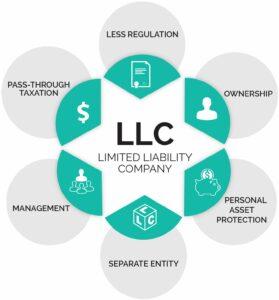 Back in January, before they truly became household names, I wrote about how the publicity around Michael Cohen’s use of an LLC to pay off Stormy Daniels fell into a larger narrative of how Delaware LLCs were being portrayed (unfairly, in my view) as equivalent to offshore shell companies, i.e., mysterious entities being used for nefarious purposes. Now, The New York Times comes along with a lengthy expose of how LLCs are being used to own real estate and enable bad behavior.
Back in January, before they truly became household names, I wrote about how the publicity around Michael Cohen’s use of an LLC to pay off Stormy Daniels fell into a larger narrative of how Delaware LLCs were being portrayed (unfairly, in my view) as equivalent to offshore shell companies, i.e., mysterious entities being used for nefarious purposes. Now, The New York Times comes along with a lengthy expose of how LLCs are being used to own real estate and enable bad behavior.
The article goes into the history of LLCs, a concept first introduced in Wyoming in the 1970s, and details how LLCs have become increasingly used for ownership of rental real estate held for investment. A reader not particularly familiar with business matters, which is a majority of the Times’ readership, likely gets the impression that the use of an LLC to own real estate is a vaguely scummy thing to do. The article notes that LLCs “shield owners from personal liability.” But in that way LLCs are no different from corporations, which existed long before the creative corporate law minds in Cheyenne (I guess?) did their thing. If we’ve accepted as a society that, for example, a restaurant can be operated by a corporation or LLC such that the owners won’t have unlimited personal liability for an accidental food poisoning, I’m not sure why it’s problematic for a landlord for an apartment to seek a similar level of protection.
The Times does detail some problematic situations where the owner of an LLC cannot be tracked down by tax authorities and others, when the registered agent has resigned. Sure, that’s not a good state of affairs, but it can be solved by legislative tinkering with the information required to be provided to the state by business entities, more severe consequences for failure to maintain a registered agent, etc. And to the extent that the use of LLCs can be part of a scheme of money laundering, I will go out on a limb and say that’s a bad thing that should be combatted. But all of these legitimate issues shouldn’t call into question the general use of LLCs or other limited liability entities for ownership of real estate, which is a long-established practice that shouldn’t be subject to undifferentiated suspicion.